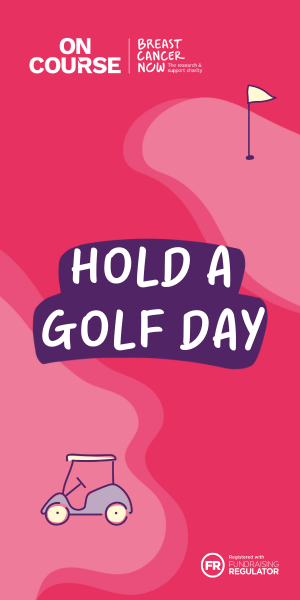Don't always blame your technique if you hit a bad shot because as Dr Kitrina Douglas explains, you should also be aware of what your body is trying to communicate.
Hindsight, as many people testify, is twenty-twenty. Once a moment has passed and we can reflect on it we can see perfectly, we wonder how we missed the obvious, sometimes wondering (in golf at least) why we made such a disastrous choice. As we try to find the reason for, ‘What went wrong’ on the golf course, I find many women too quickly plumb for an obvious reason, such as - a poor swing or the wrong club.
Excluding other more complex contributing factors means we never consider or learn how to improve them. A fast heartbeat, sweating, headaches, dry mouth, grinding joint noises, and sharp pains are just some of the ways our bodies communicate with us. But what about the less obvious ways?
Years ago, playing in my very first British Amateur Championship, I took a ten on the 18th hole in the qualifying round and missed the cut. The main reason for this particular disaster was after hitting my tee shot behind a huge old tree (something I’m sure most of you will have done from time to time and some may do regularly). I attempted to play an ambitious shot out from under the branches of the tree and round the tree towards the green. As you can guess, the shot didn’t come off.
While there may be a number of reasons for this unwise shot choice and its poor execution, reflecting on that shot with the knowledge I have now led me to consider what else may have influenced the decision, and execution. By this I mean, I don’t believe the outcome (hitting the tree and staying under the branches) was just down to a random poor swing, or to inexperience or arrogance – though the first two probably played a part.
What factors should you consider when you've hit a bad shot?
Other factors which I didn’t consider at the time were that it was the last hole of an important event, I was probably fatigued and a little tense. In other words, I probably didn’t read other signs that my body may have communicated so I didn’t take them into consideration before hitting the shot.
Many of us, by the time we get to the final hole, feel a degree of tension, after all, even when we are fit, walking five or six miles pulling or carrying a bag takes its toll. If you concentrate well you will possibly be unaware that some areas of your body may be tenser than when you started the round. But these subtle changes (in the state of your body) make a difference to the way you swing the club.
If your muscles tighten your swing can be restricted. Increased tensions can lead to a shorter backswing, and if you don’t swing back to your usual position it can increase the speed of your downswing, ruin the tempo of your swing and lead to a mishit shot. If you get called through a group - and are a little anxious or self-conscious - you may be unaware that you are walking quicker than you usually do and that may also lead you to swing more quickly.
The bad shots that occur at these times aren’t reasons to work on swing faults and solely blaming a poor swing ignores other factors. Listening to your body, on the other hand, maybe instrumental to you learning how to maintain your rhythm and tempo, or not attempting to hit too ambitious a shot if you are fatigued, nervous or under pressure.
About Dr. Kitrina Douglas
Kitrina is a qualified NCF Coach and PGA professional. She also has an Honours degree in exercise and sports science and a PhD from Bristol University.
Currently a professor at Leeds Becket University, her golf career saw her win at every level. Her achievements include representing GB&I in the Curtis Cup, 10 professional wins and being part of the first winning European Solheim Cup Team to defeat the USA in 1992.
If you enjoyed this article then you may be interested to read Stress-free golf in three easy steps.















